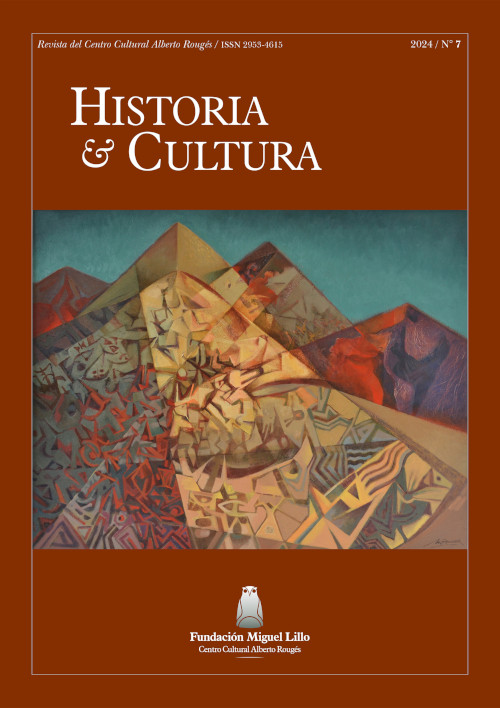The influence of indigenous and creole discourses on the development of the Amaichas’ identity (1900 to 1960, Calchaquí Valley, Tucumán Province)
Keywords:
Amaicha del Valle, indigenous communities, identity, territoryAbstract
Since the Constitution of 1853, which expresses the attempt to “preserve a peaceful relationship with the indigenous people and promote their conversion to Catholicism,” and during the transition period towards the 20th century, the idea of nation and na-
tionality was constructed in the country. There was a dispute between opposing models, a “cosmopolitan” one and a “nationalist” or “essentialist” one. The cosmopolitan model prevailed, guaranteeing broad freedoms to European migration currents under
the paradigm of the melting pot of races (Steiman, 2014). Thus, indigenous people were excluded as participants in the process of ethnic mixture and conformation of the Argentine nationality. But, the cosmopolitan model was mixed with indigenous
and creole discourses from the early 20th century, which contested the Eurocentric perspective and influenced significantly in the constitution of regional identities, especially in the case of the Calchaquí valley. In this work, we refer to the influence of these discourses on the development of the Amaichas’ identity and the forms of social organization that these identity construc-
tions represented. We analyze some of the most emblematic works by Adán Quiroga, Samuel Lafone Quevedo, Juan Ambrosetti, Augusto Cortazar, and Juan Carrizo, complemented with discourses and public policy measures by Ernesto Padilla and
Alberto Rougés, as representatives of the intellectual élite of Tucumán in the early and mid-20th century. We also consider the representatives of the Amaicha local élite, who acted as transmission bonds between indigenous and Creole intellectual and
academic expressions to local culture representatives and community authorities, especially during the periods of chiefs don Timoteo Ayala (1904 to 1934) and don Agapito Mamaní Arce (1934 to 1961).
Downloads
Downloads
Published
How to Cite
Issue
Section
License

This work is licensed under a Creative Commons Attribution-NonCommercial-NoDerivatives 4.0 International License.





